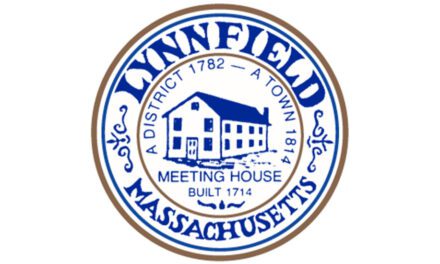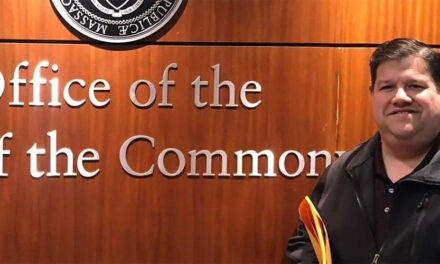Published in the October 14, 2015 edition
By DAN TOMASELLO
LYNNFIELD — Elementary school officials are pleased with student performance on the MCAS exam but school officials still have concerns about students’ reading practices outside of school.
Elementary English Language Arts Curriculum Director Maureen Fennessy and Elementary Math and Science Curriculum Director Christina Noce presented the ELA and math results to the School Committee last week.
ELA
Fennessy said she was pleased with the elementary schools’ English language arts MCAS scores.
In grade 4 English, 38 percent of students were advanced, 48 percent were proficient, 12 percent needed improvement and 2 percent received a warning. In grade 3 English, 23 percent of students were advanced, 61 percent were proficient, 16 percent needed improvement and none received a warning.
Fennessy said third grade teachers will be focusing on open response and short response questions in all genres to help improve students’ comprehension skills. She said fourth grade teachers will continue focusing on helping students improve answering open response questions. She also noted fourth grade teachers will emphasize, “compositions in various genres.”
Additionally, fourth grade teachers will be focusing on vocabulary acquisition and use. Fennessy noted school officials have been emphasizing vocabulary across the district but said students need to read more frequently in order to build a “robust vocabulary.”
In response to a question from School Committee Vice Chairman Tim Doyle, Fennessy said a number of factors are playing a role as to why students are reading less frequently.
“There are a lot of things that are beyond our control,” said Fennessy. “There has been a cultural shift as far as screen time versus authentic conversations at home. I have reached out to colleagues in other communities to see if they have tried something that works because we can’t just say people don’t read anymore. We have to build capacity in our schools and try to make that connection at home.”
Fennessy noted students are required to read at least 20 minutes each night but she said the “accountability piece can be very tricky.” She said frequently asks kindergartners if they read a book last night, and said, “very few hands have gone up.”
“I always say we need to read more,” said Fennessy. “We are trying to problem-solve and create a plan that will create some excitement not only in the elementary schools but district-wide and town-wide.”
Doyle also asked if the drop-off in student reading was the reason why the elementary, middle and high schools each included a vocabulary goal as part of their school improvement plans.
“Yes,” said Fennessy. “That was a recommendation from the district-wide ELA Review Committee, surveys from teachers and analyzing MCAS data and SAT scores. It’s the number one action item that needs to be addressed from preschool to 12th grade. And this is not just in Lynnfield. This is something we are seeing at the state and national level.”
Doyle concurred with Fennessy’s sentiment. He noted a former school board member once said, “Education doesn’t stop when a kid walks out of the door and doesn’t begin when a kid walks in the door.” He encouraged parents to make sure their children are reading at home.
“If there is nothing happening at home, we can’t help,” said Doyle. “We can give (school officials) all of the resources in the world but if it’s not going to be reemphasized at home, its not going to be successful.”
Math
Noce said the elementary math scores remained “consistent.”
In grade 3 math, 52 percent of third graders were advanced, 44 percent were proficient, 4 percent needed improvement and 1 percent received a warning. In grade 4 math, 43 percent of students were advanced, 43 percent were proficient, 14 percent needed improvement and 1 percent received a warning.
Additionally, Noce said the number of third grade special education students as well as students enrolled in Huckleberry Hill School’s Title 1 program’s advanced and proficient scores have increased the past three years.
“We are really pleased to see that,” said Noce.
According to Noce, third and fourth grade teachers will be developing ways to improve student answers on open response questions. She noted the Massachusetts Frameworks emphasize critical thinking skills, which is going to be a focus area this year.
Noce said third and fourth grade teachers will be focusing on geometric measurement as well.
Hayman reaction
School Committee member Jamie Hayman said he was pleased with the elementary schools’ MCAS scores but noted the elementary schools’ advanced and proficient scores declined this year.
“I don’t want us to become complacent where we see little drops here and there add up to big drops over time,” said Hayman. “Are you seeing anything reflected in the curriculum or is it just coincidence?”
Fennessy said elementary school officials and teachers are constantly evaluating ways to improve teaching and learning.
“We are always looking at the standards in our weaker areas to see how we can bump (MCAS scores) up,” said Fennessy. “We know we want the children to perform what they are capable of.”
Noce agreed.
“We noticed those dips as well,” said Noce. “We are constantly looking at all of learners to see if we could get more of our students into the advanced category.”




